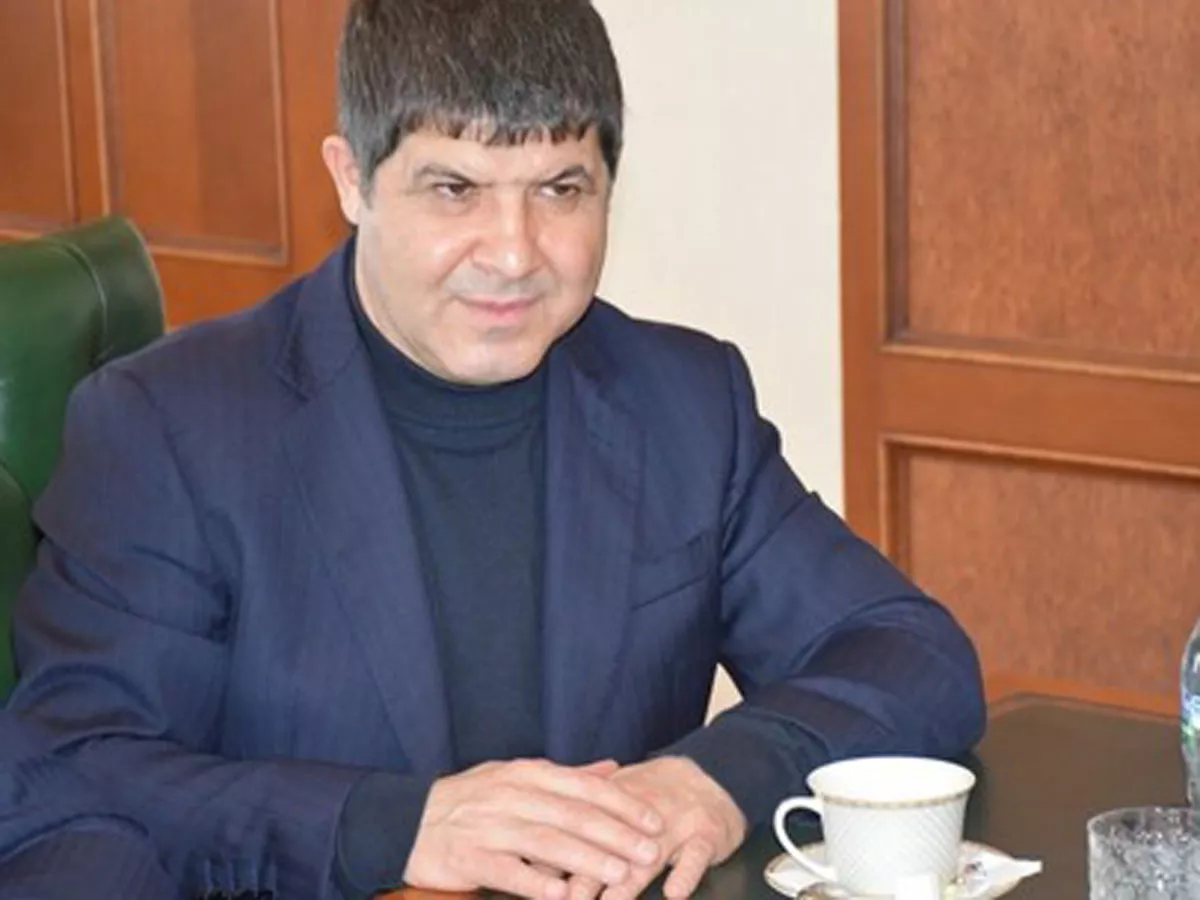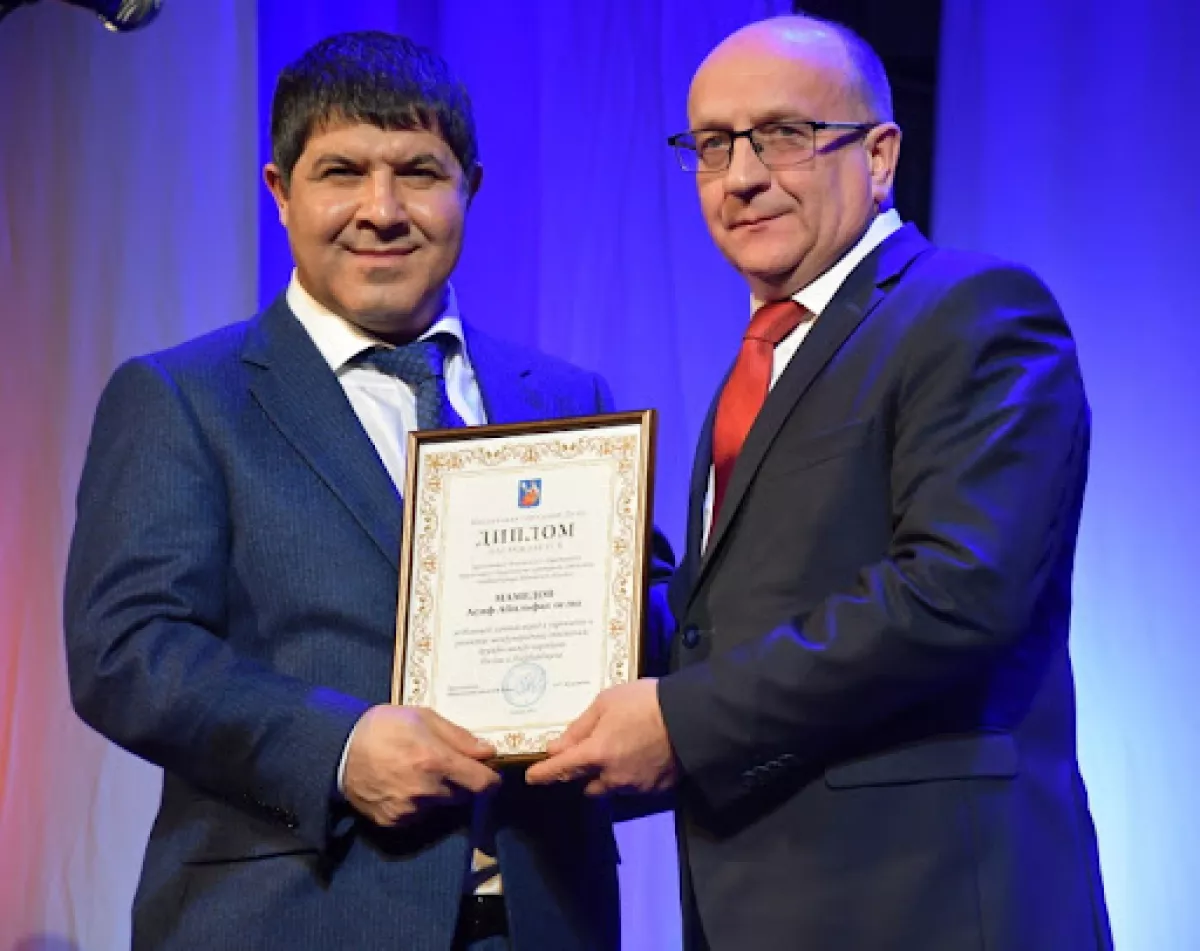Russia’s factory of hatred Azerbaijanophobia on the rise
The level of Azerbaijanophobia in Russia is reaching unprecedented heights, and recent events offer yet another stark example. On September 14, municipal elections will be held across Russia, including in the Ivanovo region. Normally, the results of such local elections might attract little attention—but one detail has made this case particularly noteworthy: it has become a pretext for Russian propagandists to unleash yet another wave of hostility toward Azerbaijanis.
Once again, the focus fell on the habitual Azerbaijanophobe, Russian nationalist Sergey Mardan. He reportedly reacted with outrage when Asif Abilfat oglu Mammadov—the head of the Azerbaijani national-cultural autonomy in Ivanovo—was nominated as a candidate by the ruling United Russia party for the municipal elections in the city.

The Kremlin propagandist decided to devote an entire episode of his signature programme to this incident.
Mammadov’s nationality and position sparked such outrage in Mardan that he even “dared” to criticize the ruling United Russia party. Of course, he would never target the party leadership itself—he hardly seems the suicidal type, and his outbursts are generally carefully coordinated and tightly controlled. In this case, he limited his indignation to the United Russia leadership in Ivanovo, effectively asking: “Do you not read the newspapers? Are you unaware of the current state of Russian-Azerbaijani relations?!”
The phrase “where is your party consciousness?” was never explicitly uttered, yet it lingered in the air, loaded with overt threats against anyone who dared to allow an Azerbaijani to run in the municipal elections. Mammadov’s Azerbaijani heritage was repeatedly highlighted. At one point, Ivanovo officials from United Russia and the regional governor were even warned to “think carefully before Sunday.”
Calls, threats, and intimidation were delivered openly and brazenly, with full confidence in their impunity—and even in the hope of earning praise from their superiors for another round of anti-Azerbaijani rhetoric on air. Moreover, Mardan repeatedly stressed the importance of promoting only members of the titular nation—Russians—wherever possible. This is pure, unadulterated Nazism, stripped of any disguise.

In the end, Asif Mammadov was forced to withdraw his candidacy after a wave of shocking calls and threats, unleashed by the “collective Mardan” across nearly every propaganda platform. No one was allowed to mention that in Azerbaijan, Mikhail Zabelin, chairman of the Russian Community of Azerbaijan, has served as a member of the Milli Majlis (parliament) for multiple terms, or that people of different nationalities in the country live together in peace and harmony, occupying a variety of positions—including in government.
Historical parallels are hard to ignore. We know that antisemitism was a central pillar of Nazi ideology, rooted in beliefs of racial superiority. It initially manifested through propaganda and discriminatory rhetoric, then through laws, directives, and practices that systematically excluded Jews from public, economic, and cultural life. What began with words and restrictions eventually culminated in the Holocaust.
As early as the 1930s, Nazi leaders’ speeches featured recurring expressions such as: “the Jew as a foreign body in the German organism”; “it is unacceptable for Jews to hold leadership positions”; “civil service is for Aryans, not for the enemies of the Reich.” In Mein Kampf, Adolf Hitler claimed that Jews “cannot serve the German people, for they serve only their own tribal interests.” These formulations became the basis of the official doctrine of “the Jew as the outsider,” depriving them of the right to participate in the political and administrative system.
How, then, is this different from Mardan’s speeches targeting Azerbaijanis and the current wave of Azerbaijanophobia sweeping across much of Russia? The answer is clear — it isn’t. This trend sends a deeply troubling signal for members of all other nationalities living in the Russian Federation.
We recall that in Nazi Germany, anti-Jewish rhetoric quickly translated into law. On April 7, 1933, the Law for the Restoration of the Professional Civil Service (Gesetz zur Wiederherstellung des Berufsbeamtentums) was enacted, barring Jews from holding positions in government institutions, schools, and courts.
Can we be certain that the Russian State Duma will not issue a similar decree against Azerbaijanis and other “outsiders”? Personally, I am not convinced. In today’s Russia, Azerbaijanis could face the same kind of treatment that Jews endured in Nazi Germany — including economic pressure. In Germany at the time, media and public rallies widely promoted slogans such as “Aryans must buy from Aryans” and “German money must not go into Jewish hands.”

In April 1933, the first boycott of Jewish businesses was carried out, accompanied by attacks from SA stormtroopers. Stars of David and the word “Jude” (Jew) were painted on walls and shop windows. This was followed by the “Aryanisation” of business — the forced transfer of Jewish-owned enterprises to “Aryan” owners at undervalued prices, or through outright confiscation. Jews were stripped of their professional licenses, barred from chambers of commerce and industry, and denied access to bank loans.
It would be no surprise if, in modern Russia, a similar process were applied to Azerbaijanis. In fact, it has already begun. It is only a matter of time before proposals from Mardan or other Kremlin propagandists emerge, suggesting that Azerbaijanis should walk the streets of Russian cities wearing a crescent and the letter “A” on their clothing — echoing Nazi Germany, where Jews were forced to wear the letter “J.”
And then the step to concentration camps is not far off — Auschwitz and Dachau are stark reminders. This is not an exaggeration. I am sounding a warning about a trend already underway and encouraged at the highest levels in Russia — a trend that threatens not only Azerbaijanis, but also Uzbeks, Tajiks, Turkmens, and other “outsiders,” who are openly told that they are “slaves of the Russian people.”








